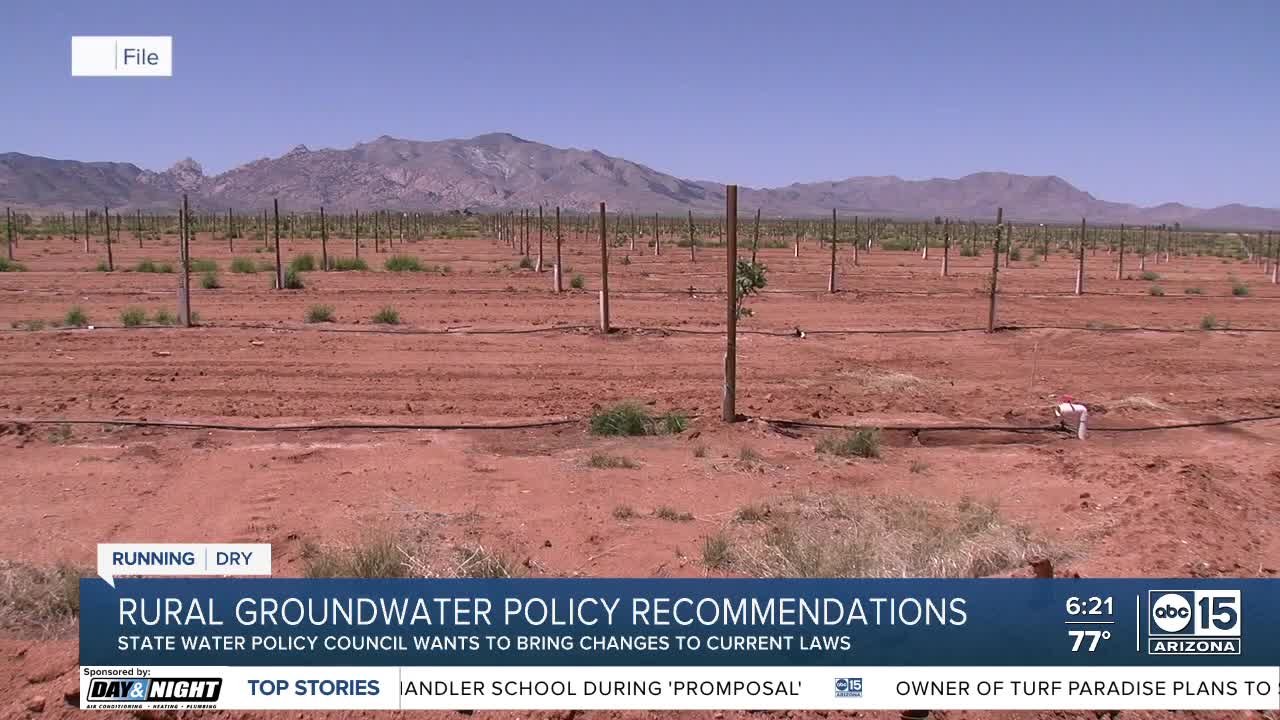PHOENIX — For decades, Arizona's rural groundwater has been pumped and depleted without being checked or regulated, putting a strain on the dozens of communities that depend on it as part of their livelihood.
"All of those folks need to have some sort of certainty in our water planning," said Mohave County Supervisor Travis Lingenfelter. "We just don't have that right now in rural [Arizona]."
It's been that way for decades, too, but in early 2023, Governor Katie Hobbs established the Governor's Water Policy Council, tasking it with modernizing Arizona's groundwater laws.
One of the Council's members, Haley Paul, says they've been working hard for the last six months to come up with some good recommendations. In late November, the Council came up with what it calls a "framework" for groundwater management in rural Arizona.
"It is a framework that allows local communities to choose how to manage their water supplies but with the backing and support of the state through the [Arizona] Department of Water Resources," Paul stated.
The framework includes establishing Rural Groundwater Management Areas in what the Council deems at-risk basins where the groundwater supply is threatened. Recommendations also include implementing mandatory groundwater monitoring and conservation, limits on new wells, and enacting local management goals based on climate, the economy, and ecological factors.
Yavapai County Supervisor Donna Michaels applauds the recommendations, saying it's going to be an effective tool.
Mohave County Supervisor Lingenfelter, La Paz County Supervisor Holly Irwin, and Coconino County Supervisor Patrice Horstman also support the recommendations.
Arizona Representative Gail Griffin, who is also on the Governor's Water Policy Council, does not endorse the proposal.
Instead, she supports Arizona Senator Sine Kerr's proposed "Water Basin Management Plan" that encourages water conservation by using best practices across all industries.
Any final recommendations would have to come in the form of a bill next year at the Capitol.
Rural leaders are hopeful that this time, action will take place in the Arizona Legislature.
"The time for fear-based conversation has ended," Supervisor Michaels states. "We must come together and collaborate in authentic ways to ensure that not only our major metropolitan areas but all of our rural areas can be assured of water security."




